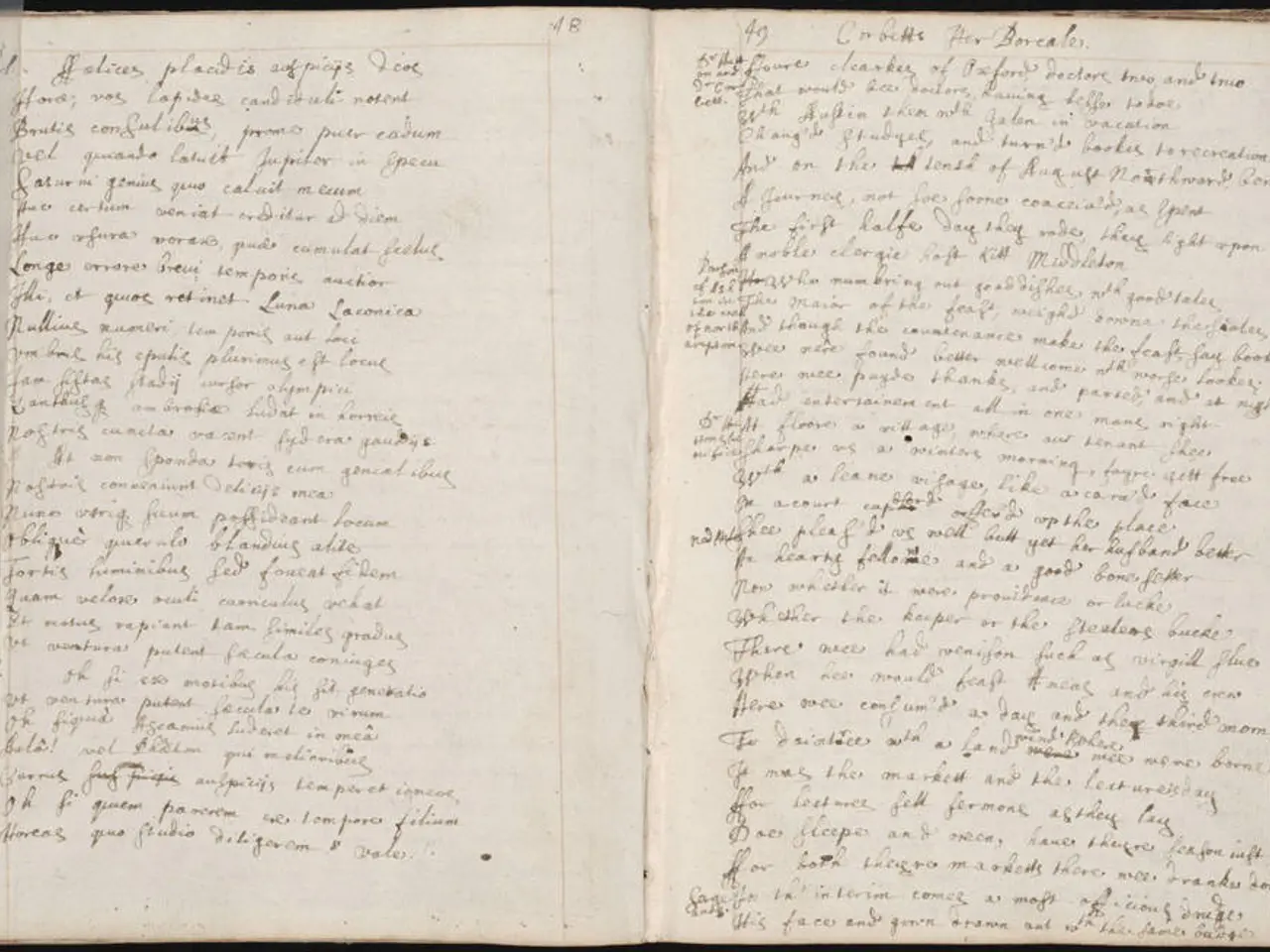Essential Task List for Proofreading Research Papers to Ensure Error-Free Submissions
Ace Your Research Paper: The Essential Guide for Last-Minute Perfection
We've all been there - cramming to finish a research paper at the last minute, only to discover a host of avoidable mistakes. To help you avoid those panic-induced errors, this guide, bolstered by the wisdom of EssayHub writing gurus, presents a comprehensive research paper checklist. By adhering to this list, you'll ensure your work shines and impresses your professor.
Common Slip-Ups: What to Watch Out For
In academic settings, research papers require well-reasoned arguments, painstaking analysis, and solid evidence. Missteps may seem minor, but they can hinder your success. Avoid the following pitfalls by creating a personal research paper editing checklist:
- Weak Thesis: A compelling thesis statement is crucial to maintain a strong, coherent argument.
- Disjointed Transitions: Clear transitions between paragraphs are essential for smooth reading and logical flow.
- Missing Citations: Neglecting proper citation may tarnish your work's credibility.
By checking for a strong thesis, clear arguments, and proper citations, you'll sidestep these pitfalls and submit a polished and refined paper.
DIY Research Paper Self-Checklist by EssayHub
Here's an essential self-editing checklist for your research paper:
Structure and Content
Ensure your paper follows a well-defined structure: introduction, body, and conclusion. Craft a clear and concise thesis statement. Make sure all arguments are well-supported with credible information. Smooth transitions between paragraphs are vital to promote easy reading and a logical flow in your research.
Clarity and Style
Use formal, scholarly language. Eliminate filler words and imprecise language. Variety in sentence structure and length adds readability. Maintaining a suitable tone that both engages and remains professional is essential. Follow this paper checklist for a final review.
Evidence and Citations
Cite all facts, quotes, and data correctly. Ensure in-text citations comply with the preferred style guide (e.g., APA). Examine your reference or bibliography page for appropriate formatting. Utilize the research checklist to confirm there are no accidental plagiarism risks.
Formatting
Ensure your paper is double-spaced, has 1-inch margins, and maintains consistent heading styles. Maintain uniform font size and page numbers. Adopt the appropriate citation style (APA, MLA, Chicago, etc.) to meet the requirements of your paper checklist.
Grammar and Mechanics
Thoroughly review your paper for typos, spelling errors, and missing or extra words. Check punctuation, such as commas, semicolons, and apostrophes, for accuracy. Verify verb tenses are consistent and subject-verb agreement is correct. Utilize the research paper editing checklist to catch these mistakes.
When In Doubt, Seek Assistance from EssayHub Experts
Still unsure if your paper meets the required standard? DIY editing can be tough, especially when under pressure. If you need extra help, EssayHub offers research paper support, focusing on editing, proofreading, and fine-tuning arguments. They ensure proper citations and provide expert feedback to improve structure and clarity.
In case you require more assistance, their writers can help you from topic selection to the final draft. User reviews attest to their top-notch service. To ease the process, use a self-editing checklist for research paper to catch minor errors first.
Additional Steps for a Superior Research Paper
- Take a Break: Take a breather before proofreading to return with fresh eyes.
- Read Out Loud: Reading your paper aloud can help identify hidden errors and improve flow.
- Leverage Grammar-Check Tools: While these tools aren't foolproof, they can be helpful for catching mechanical errors.
- Seek Feedback: Get feedback from a peer or expert help from EssayHub to spot mistakes you might miss.
- Print a Physical Copy: Reading on paper can help spot formatting inconsistencies, missed punctuation, and awkward phrasing. Highlight key points and jot notes in the margins for further adjustments.
In Conclusion
Editing is crucial for academic success. Refine your editing skills to make your papers stand out. With practice and the right tools, you can transform a good paper into a remarkable one. Happy revising!
Related Articles
- The Most Updated Logo Design Trends in 2025
- "The Beginner's Guide to Illustrate a Children's Book"
- "30 Best Viking Tattoo Ideas You Should Check"
- "30 Best Abstract Painting Ideas You Should Check"
- "30 Best Aesthetic Desk Setup Ideas You Should Check"
- "Nike Logo Design: History & Evolution"
- "Creative Guide to Design Custom Coffee Bags"
- "The Essential Guide to Logo Design Grid Systems"
- "The Psychology of Shapes in Logo designs"
- "How To Check If Your Logo Is Unique & Unused"
- In the process of refining your research paper, it's essential to spend time on education-and-self-development, such as learning about grammar-check tools to catch minor mechanical errors.
- To transform a good research paper into a remarkable one, practicing the art of learning from feedback is crucial since it helps avoid mistakes you might miss, aiding in the development of your skills in education-and-self-development.







